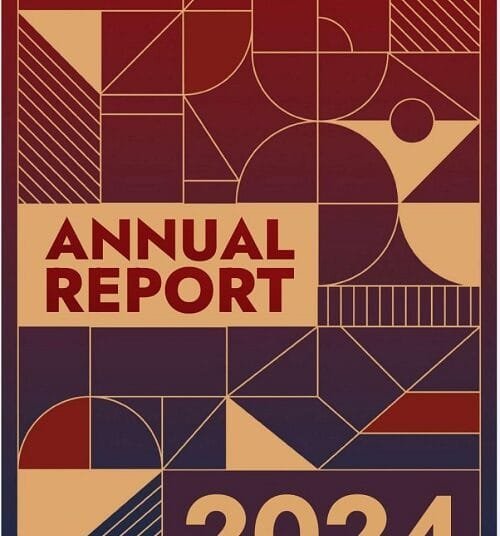Global Capability Centres are major demand driver
India’s commercial office market is projected to reach new heights of 65-70 million square feet in 2025, according to a new FICCI-Colliers report.
In 2024, the market witnessed an unprecedented transformation, having achieved record-breaking absorption of 66.4 million square feet in 2024, marking 14% year-on-year growth, said the report, “India Office | Setting New Standards for 2025” launched at the 18th FICCI Real Estate Summit https://www.nseindia.com/.
The shift from a supply-led to an occupier-driven market has been cemented by three consecutive years of leasing volumes exceeding 50 million square feet, the report said on 11 Feb https://www.bseindia.com/.
Bengaluru led with its highest-ever absorption of 21.7 million square feet in 2024, while Hyderabad registered the strongest growth at 55%.
Technology sector’s traditional dominance has notably declined from 40-50% to 25% of total leasing, as engineering and manufacturing firms, banking and financial services, and flexible workspace operators collectively emerge to account for over half of Grade A office uptake. Flex spaces have particularly dominated in Delhi-NCR, Hyderabad, and Pune.
Global Capability Centres (GCCs) have emerged as a major demand driver, with leasing surging 41% year-on-year to 25.7 million square feet in 2024. Bengaluru captured 47% of GCC leasing, while Mumbai witnessed a remarkable fourfold increase in GCC uptake compared to 2023 https://www.investindia.gov.in/.
“Office leasing is expected to grow another 8-10% in FY26, fuelled by demand from GCCs and financial services sector,” said Raj Menda, Chairman, FICCI Committee on Urban Development and Real Estate & Chairman of Supervisory Board, RMZ Corporation.
The market’s evolution reflects a fundamental shift in occupier preferences, with sustainability becoming a core consideration. Over 70% of leasing now concentrated in green-certified buildings, expected to reach 80-85% in 2025.
“Nearly 80% of new supply over the next 2-3 years will be green certified,” added Menda. “By embracing sustainability and innovation, we can create a legacy that extends far beyond bricks and mortar. We can contribute to the economic growth of our nation, enhance the well-being of our citizens, and leave a lasting impact on the environment https://www.conexpoconagg.com/.”
The Real Estate Investment Trust (REIT) landscape is expanding rapidly, with approximately 80 million square feet currently under REITs. The successful listing of India’s first Small & Medium REIT (SM-REIT) in 2024 has opened new avenues for retail investors, with potential REIT-able stock identified at an additional 400 million square feet https://www.credai.org/home.
Looking ahead to 2025, the Indian office market is expected to see new supply of 60-65 million square feet, while vacancy levels are projected to decline to 15-16%. Average rental values are forecast to reach Rs.100-Rs.110 per square foot per month.
The report highlights strong momentum in tier II cities driven by hybrid work policies, while established markets continue to evolve with Mumbai seeing renewed interest from global consulting and private equity firms.
On occasion, Gaurav Pandey, Co-Chairman, FICCI Committee on Urban Development and Real Estate & Managing Director and CEO, Godrej Properties, provided a snapshot of the residential RE segment that achieved a milestone in 2024, recording demand for 1 billion square feet of space — the highest ever — representing a market size of Rs 8.5 lakh crore, with 75% concentrated in the top five cities.
“The sector needs execution build-up and brilliant talent, including both white-collar and blue-collar jobs,” Pandey added, emphasising that developer focus on labour strategy and talent management would be crucial for sustained growth.
On the investment front, institutional inflows reached US$4.7 billion in the first nine months of 2024, with over 60% directed towards industrial, warehousing and residential assets. The recent budget announcement of an Urban Challenge Fund worth Rs.1 lakh crore aims to transform cities into growth hubs and improve infrastructure.
Vipul Roongta, Co-Chairman, FICCI Committee on Urban Development & Real Estate and Managing Director and CEO, HDFC Capital Advisors, cautioned about affordability challenges in the residential segment, noting that the average unit price of Rs.1 crore in major cities poses accessibility issues for the emerging middle class, who can typically afford homes in the Rs.50-75 lakh range.
Sriram Khattar, Vice Chairman & Managing Director-Rental Business, DLF, said, “Gone are the days where one could build commercial offices at 70, 80 square feet per desk and sort of fill up the place. The emphasis is now on the quality of the real estate that is provided for to the occupiers and their employees.”
Arpit Mehrotra, Managing Director-Office Services, Colliers India, said, “The occupier-driven Indian office market will continue to diversify throughout 2025 and developers will become increasingly agile in catering to evolving preferences.” Fiinews.com









